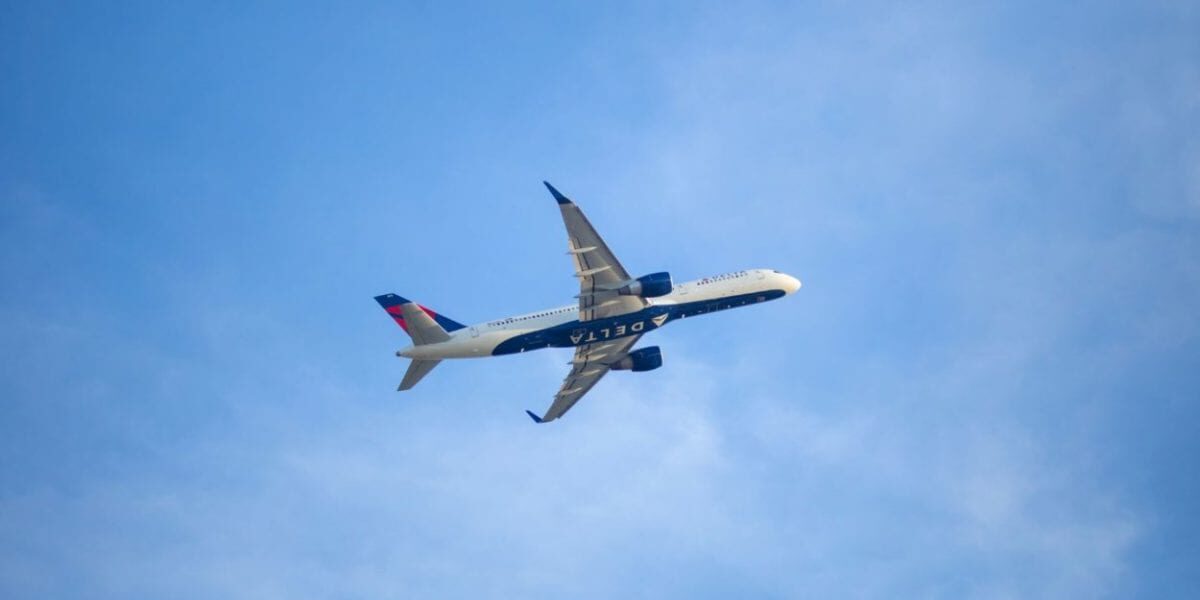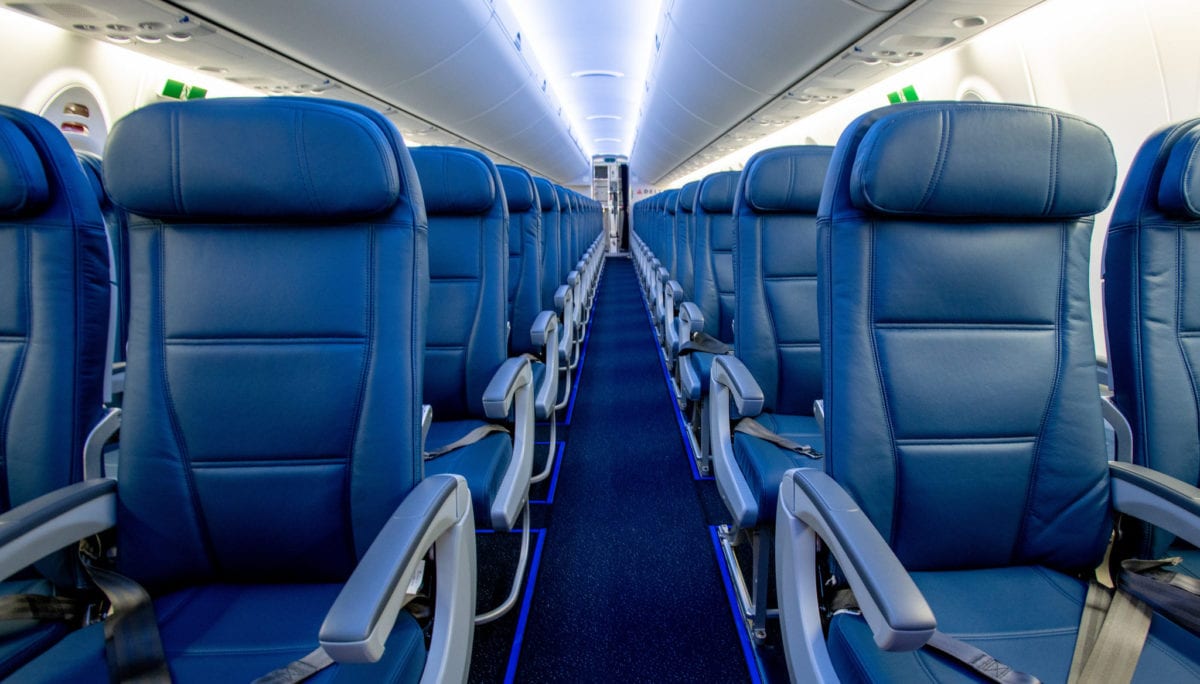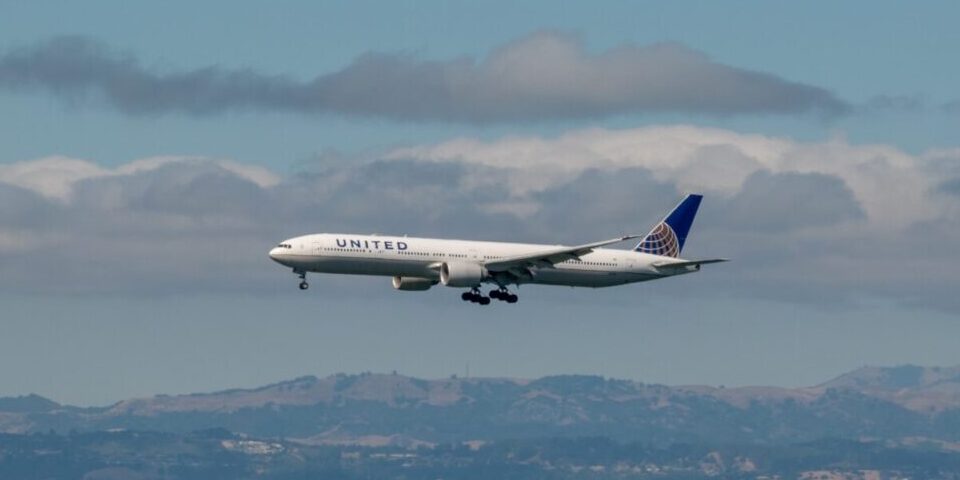Delta Air Lines is officially betting on artificial intelligence to price its flights – and not just in a small way. By the end of the year, the Atlanta-based airline plans to use AI-powered pricing to set fares on up to 20% of its domestic routes, a major expansion from where things stand today.
Delta first revealed late last year that it was testing AI-driven pricing on a small scale using technology from Israeli startup Fetcherr, deploying it on about 1% of flights. Seven months later, they’re ramping up fast.
“We like what we see. We like it a lot, and we’re continuing to roll it out,” Delta President Glen Hauenstein said on the airline’s latest earnings call. This means Delta is moving toward a world where fares could change not just by the hour or day but potentially by the customer.
Delta isn’t saying whether prices will go up or down as a result, but let’s be honest: Airlines don’t roll out new tech like this to make less money. The real risk is that it could make it even harder to know whether the price you see is actually a good deal, or just the best price Delta thinks you’ll accept.
So What Does This Mean for Travelers?
In short, forget static airfare prices. Delta’s goal is to use AI to determine what you are willing to pay – a “super analyst,” as Hauenstein called it, working around the clock to tweak prices based on demand, booking patterns, and more.
That’s a significant departure from how airfare pricing has traditionally worked. While it often feels mystifying (and frustrating), airfare pricing has used the same basic system for decades. Every time you search for a flight, the airline puts you into one of 20-plus pricing buckets — each with its own rules and price.
Throughout the day, prices shift as airlines adjust fares within those classes, all while consumer demand ebbs and flows.
“This is a full re-engineering of how we price, and how we will be pricing in the future,” Hauenstein said. “We will have a price available on that airplane at that time that’s available to you, the individual.”
For now, Delta says this is all still in testing, and they’re “taking it slow” to avoid any “unwanted answers.” But if the early results stick – generating more revenue without frustrating flyers – you can bet this strategy will expand at Delta and across the industry.
Airlines have been working for years to develop a more dynamic, personalized pricing system. AI is the most straightforward path to making that a reality. And Delta isn’t the only one experimenting: To some extent, WestJet, Virgin Atlantic, Air Asia, and others have all fessed up to using AI in some form to help squeeze as much revenue as possible out of travelers.
This shift will likely lead to more incentives to book directly with Delta instead of third-party travel sites, as AI-driven pricing could make booking directly with the airline even more essential for getting the best price – think something similar to Delta's TakeOff 15 benefit, which provides a 15% discount on SkyMiles award bookings to travelers who carry certain co-branded Delta and American Express credit cards.
For now, though, travelers can still go straight to Google Flights to search, compare, and track airline prices. But as Delta continues rolling out AI pricing, expect more of the personalized, AI-driven fares to live exclusively on Delta.com or the Delta app, with extra incentives to lure you to book directly.
That means it may soon get even harder to know whether the price you’re seeing is truly the best available, or just the best Delta thinks you’ll pay.
Related reading: Why Did Your Flight Cost Suddenly Jump? Explaining Changes in Airfare Prices
Bottom Line
Delta is expanding its use of AI to price its flights, with plans to personalize fares for each traveler in the not-so-distant future. It’s still in the testing phase, but if it proves successful, it could completely reshape how airfare pricing works – not just at Delta, but across the airline industry.







In the late 1980’s there was an unforgettable segment on the Regis and Kathy Lee Show which highlighted airlines increasing operational costs. Before deregulation, the perception was airlines were profitable entities. Regis accompanied by the airline’s CEO, filmed during a short-haul flight from New York. As part of the segment, Regis was shocked by the array of ticket prices the passengers had paid. He turned to the executive and complained, ” and now that you have these new fancy computer machines … no two people will ever pay the same price for a ticket again!” Regis Philbin, the Great Prognosticator, how right you were!
I went to ChatGPT and asked how to counter Delta’s strategy outlined in this article, and here is what I got back.
Here’s a comprehensive guide to help you **play and win** in Delta’s new AI-enhanced pricing game:
—
## 🧠 1. Understand Delta’s AI Pricing Strategy
* **What they’re doing**: Delta is deploying AI developed by Fetcherr to personalize ticket pricing—initially on 3% of flights, ramping up to 20% by the end of 2025, with the long-term aim of eliminating static prices ([The Verge][1], [The Sun][2]).
* **How it works**: This “super‑analyst” AI analyzes your browsing data, booking patterns, location, device, maybe even loyalty status, to estimate the highest price you’re willing to pay—and adjusts the fare accordingly ([Сyber Сorsairs ☠️][3]).
* **Why it matters**: Travelers perceived as budget‑sensitive might score below-market deals, while high-spenders (e.g., business travelers) could be targeted with higher fares ([Сyber Сorsairs ☠️][3]).
—
## 🎯 2. How to Outsmart the Algorithm
### a) Hide Your Identity & Reset Its Memory
* **Use Incognito Mode**: Searches in private mode avoid accumulating cookies and search history, making you seem like a fresh user ([Сyber Сorsairs ☠️][3]).
* **Clear Cookies Regularly**: Same effect—remove signing-in clues that give the AI insight into your habits.
### b) Disguise Your Location & Profile
* **Use a VPN**: Rotate your apparent location across different regions or countries. AI relies heavily on this to assess socioeconomic profile ([Сyber Сorsairs ☠️][3]).
* **Change Devices/OS**: Try browsing on different platforms (phone vs laptop; Windows vs Mac) to avoid profile triangulation.
### c) Shop Around & Compare
* **Use OTAs (Online Travel Agencies)**: Sites like Expedia, Kayak, or Google Flights may present different pricing models without personalized pricing signals.
* **Fetch offline quotes**: Some prices change when viewed via API or flight search tools that don’t leak your data.
### d) Time Your Purchase Strategically
* **Book last-minute deals**: AI may drop prices to fill unsold seats near departure, especially on less full flights ([Сyber Сorsairs ☠️][3]).
* **Track fares over time**: Sometimes searching earlier and later in the week—or different times of day—can produce different fare outcomes.
### e) Be Willing to Walk Away
* If prices seem inflated:
* Wait 24–48 hours, then re-search with cleared cookies or new VPN location.
* Consider alternate dates or nearby airports.
* Push through by shifting to OTA aggregates.
—
## 🎁 3. Leverage Loyalty & Offers
* **Use Delta loyalty perks**: As a frequent flier or Medallion member, you may receive less personalized price hikes and access to promos.
* **Combine with credit card deals**: Use Delta-branded cards or travel-focused credit cards (e.g., Hilton, Marriott acquire points) to stack extra value—even when fares fluctuate.
—
## ⚠️ 4. Know the Risks & Stay Informed
* **Privacy concerns are real**: Delta’s AI may collect data about your behavior without full transparency ([Yahoo Finance][4], [Fortune][5], [BGR][6]).
* **Fairness issues**: Critics argue this is personalized price discrimination and could erode trust ([The Sun][2]).
* **Regulatory scrutiny may come**: Legislation might evolve to curb overly invasive AI pricing models.
—
### ✅ Your Winning Checklist
| Strategy | Why It Helps |
| ————————- | ———————————————— |
| Incognito + Clear Cookies | Avoid building a profile that prompts high fares |
| VPN | Disrupt location profiling |
| Use OTAs or flight tools | Access neutral pricing algorithms |
| Monitor timing | Catch last-minute fare drops |
| Use loyalty & cards | Secure discounts and perks beyond fare pricing |
—
### Bottom line
Delta’s AI will test how much you’re willing to pay. By **masking your identity**, **shopping smartly**, and **leveraging loyalty**, you can **tilt the AI’s algorithm in your favor**—stepping out of its profit-maximizing radar and into your own budget-savvy zone.
Feel free to reach out if you want help setting up your VPN, choosing OTAs, or optimizing credit card rewards for travel!
[1]: https://www.theverge.com/news/709556/delta-air-lines-ai-ticket-price-rollout?utm_source=chatgpt.com “Delta Air Lines is using AI to set the maximum price you’re willing to pay”
[2]: https://www.the-sun.com/travel/14730376/delta-airline-ai-price-increase-dynamic-change/?utm_source=chatgpt.com “‘Best airline of 2025’ Delta confirms controversial change to ticket pricing – other airlines ‘secretly followed suit'”
[3]: https://cybercorsairs.com/deltas-ai-pricing-what-it-means-for-you/?utm_source=chatgpt.com “Delta’s AI Pricing Explained: How to Beat the Algorithm”
[4]: https://finance.yahoo.com/news/delta-moves-toward-eliminating-set-104800561.html?utm_source=chatgpt.com “Delta moves toward eliminating set prices in favor of AI that …”
[5]: https://fortune.com/2025/07/16/delta-moves-toward-eliminating-set-prices-in-favor-of-ai-that-determines-how-much-you-personally-will-pay-for-a-ticket/?utm_source=chatgpt.com “Delta moves toward eliminating set prices in favor of AI … – Fortune”
[6]: https://bgr.com/business/delta-is-using-ai-to-charge-some-people-more-for-tickets-than-others/?utm_source=chatgpt.com “Delta is using AI to charge some people more for tickets than …”
AI pricing for Delta won’t be that big a change IMO; they already change fares daily, sometimes more often than that. Now that changing your cooking when fares or miles come down from what you paid, you have opportunities to get lower prices than was possible when there were fees for this. In fact, it’s kind of fun to see if you can beat the bank, so to speak, by check fares this way.
This type of “individualized” AI driven pricing will spawn the creation of numerous Facebook groups or other social media gathering places where potential customers will compare prices they are seeing on specific airline routes.
For years people have been saying it’s not necessary to go in incognito mode when searching for fares. Well, maybe now it will be needed.
There’s simply no possible way that this works out better for consumers as a whole. Now, Delta will squeeze every last dime out of passengers but that’s not even the worst part. Other airlines will quickly follow suit to charge more and offer less, then hotels will do the same.
My credit score should not impact my airfare. Just because I can, doent mean I want to pay even 1% more than the guy next to me. I guess I better get the AC in my car fixed for those domestic trips…
Fire with fire… this should spawn a flood of AI powered flight purchasing apps that play the game to get you the best price on your flight.